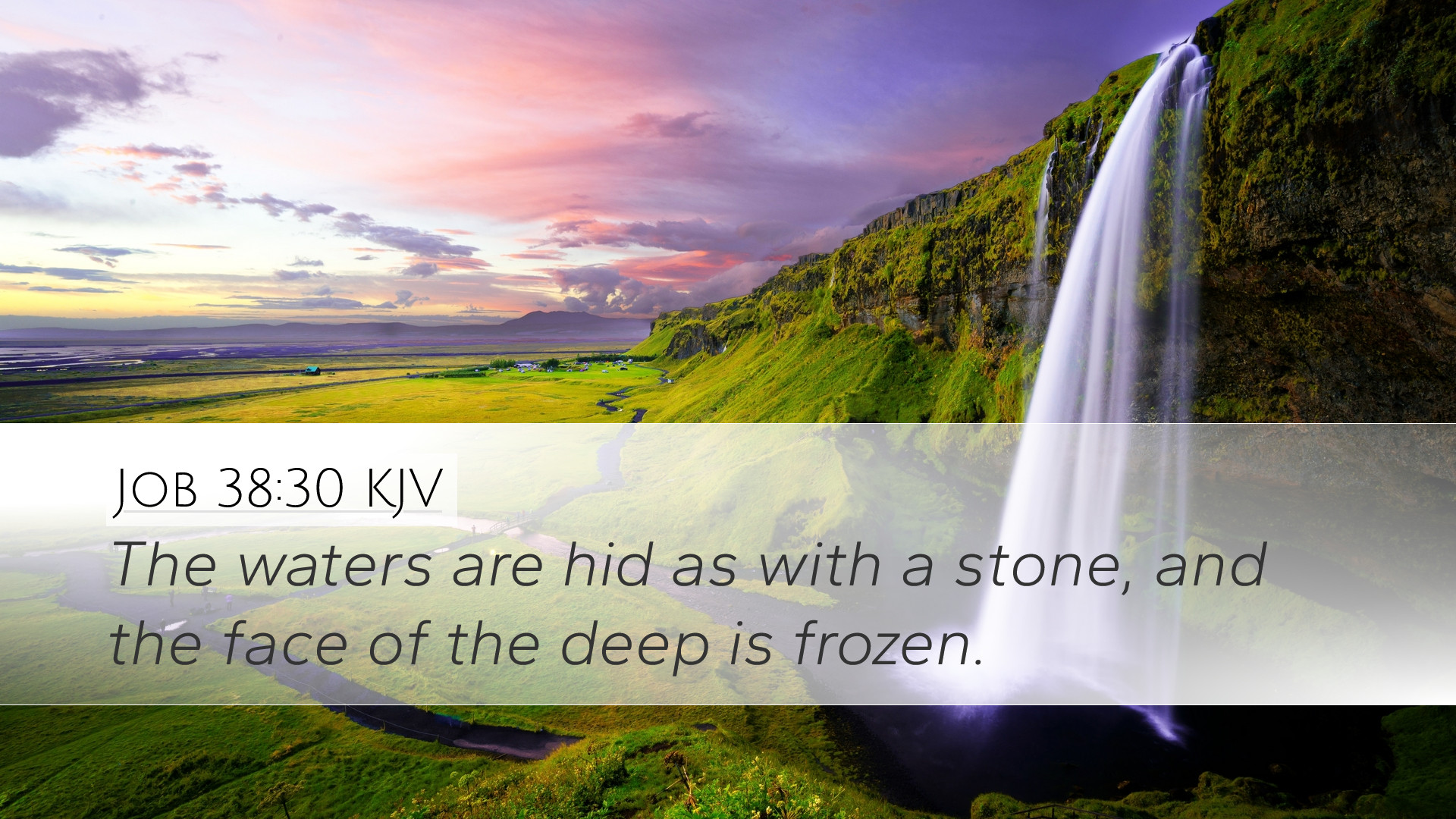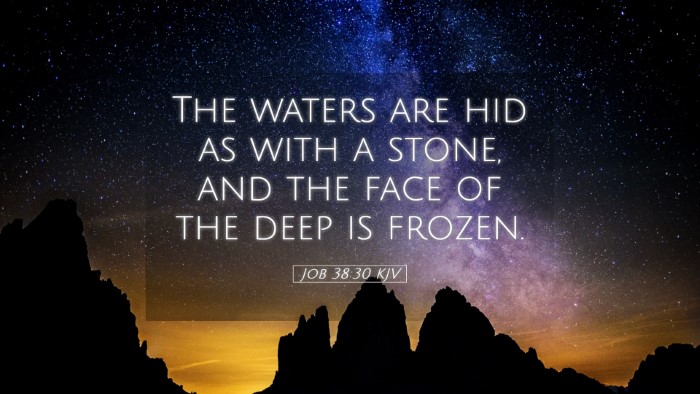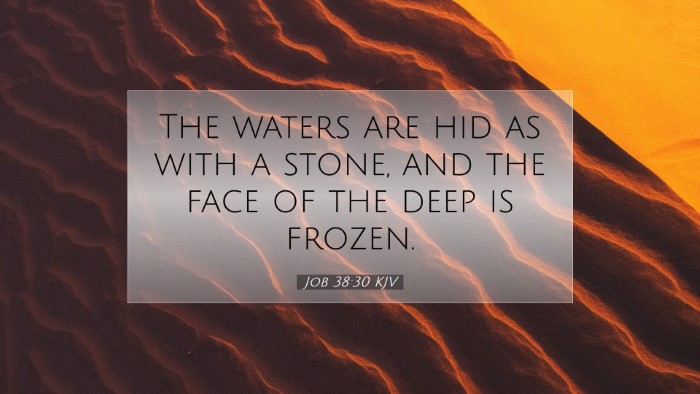Commentary on Job 38:30
Verse: Job 38:30 - "The waters are hid as with a stone, and the face of the deep is frozen."
Contextual Introduction
The Book of Job is a profound exploration of suffering, divine justice, and human understanding. It presents a dialogue between Job, a righteous man who suffers immensely, and his friends who attempt to rationalize his suffering through traditional wisdom and doctrine. Job's anguished questions concerning his suffering lead ultimately to God's response in chapters 38-41, where God speaks of creation's mysteries, revealing both His omnipotence and the limitations of human understanding. Chapter 38 begins this divine discourse, reminding Job—and the reader—of the majesty and complexity of God's creation.
Verse Analysis
Job 38:30 presents a vivid image of the natural world, reflecting God's creative power. The verse reads in several translations as a description of how God controls and conceals elements of the natural world, illustrating deeper theological principles:
- The Concealment of Water: The phrase "the waters are hid as with a stone" suggests that God has the authority to hide or contain waters. This can be understood both literally and metaphorically. Literally, it speaks to the deep places of the earth where waters are concealed.
- The Frozen Deep: The "face of the deep is frozen" illustrates the inherent power that God exercises over creation. It signifies not just physical phenomena but also speaks to the stillness and powerlessness of something when in God's presence.
Theological Insights
This verse invites deep theological reflection, particularly regarding God’s sovereignty over nature. Drawing from Matthew Henry's insights, he notes that such descriptions call attention to the complexities of creation that human beings often overlook. Despite humanity's advancements in understanding the natural world, many mysteries remain veiled in divine wisdom.
Albert Barnes emphasizes that this imagery encapsulates God’s omniscience and power. The hidden waters may symbolize the depth of knowledge and understanding that are beyond human grasp, accentuating the theme of divine mystery. Barnes asserts that, while Job seeks answers to his suffering, God redirects his gaze to the sheer vastness of creation as a reminder of His eternality and control.
Adam Clarke elaborates on the metaphor of freezing waters, suggesting it reflects times of judgment or periods when God remains unapproachable and inaccessible. Clarke's commentary highlights how God's presence can freeze and still what appears tumultuous, illustrating that even in moments of trial and suffering, God’s hand is present, albeit often unrecognized by humanity.
Practical Applications
The imagery and themes in Job 38:30 provide substantial lessons applicable to believers today:
- Understanding Divine Authority: The verse challenges us to recognize God’s authority over the cosmos and our lives. In moments of doubt or suffering, reflecting on God’s sovereign control can yield peace and trust.
- Mystery of Creation: The hidden waters can symbolize the mysteries of God that are often beyond our understanding. Believers are encouraged to approach life’s uncertainties with humility, recognizing that not all answers may be granted within our lifetime.
- Faith During Trials: When encountering frozen or desolate times, akin to the deep being frozen, one is reminded that God’s presence and power still encompass the situation. Trusting in His wisdom leads to spiritual resilience.
Conclusion
Job 38:30 is a profound reminder of the mysteries of God, the depths of creation, and the nature of divine authority. As God speaks to Job, He illustrates the majesty of His works, compelling us to recognize both His power and our limitations. The insights from public domain commentators such as Matthew Henry, Albert Barnes, and Adam Clarke invite pastors, students, and theologians to engage deeply with this text, drawing from its rich theological and practical lessons. In navigating the complexities of life and faith, we can find comfort in the knowledge that the Creator of the universe encompasses both the hidden and the revealed.


